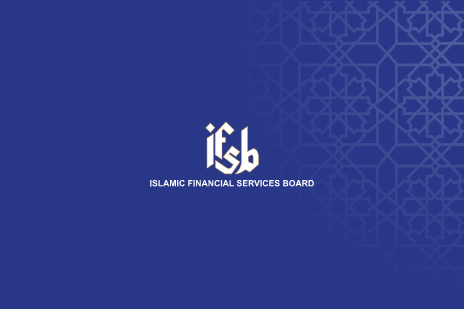
- This event has passed.
IFSB-INCEIF Executive Forum on Global Regulatory Reforms: What They Mean for Islamic Finance
November 10, 2014 @ 8:30 AM – November 11, 2014 @ 5:30 PM

This IFSB-INCEIF Executive Forum on Global Regulatory Reforms: What They Mean for Islamic Finance offers a platform for high level deliberations and exchanges of views among participants – global leaders from among practitioners, regulators and academics – on how the global regulatory initiatives may have impacted the stability, development and growth of the Islamic financial services industry.
Among others, the two-day Executive Forum will see the sharing of experiences and discussions of specific issues facilitated by experienced speakers from among regulators, industry leaders and academics. The participants will benefit from delivering views of counterparts and peers of different backgrounds and geographical locations.
To date, the following speakers are confirmed to speak at this Executive Forum:
- Dr. Ali Al Amari, Senior Director of Regulatory Affairs, Qatar Financial Centre Regulatory Authority
- Mr. Serdar Güner, Director of Supervision, Dubai Financial Services Authority
- Dr. Rifki Ismal – Assistant Director, Department of Islamic Banking, Bank Indonesia
- Mr. Naimi Shuib, Risk Specialist, Bank Negara Malaysia
- Mr. Mehmet S. Yurtcicek, Head of Legal Affairs Department, Banking Regulation and Supervision Agency of Turkey
- Mr. Norfadelizan Abdul Rahman, President Director, Maybank Syariah Indonesia
- Mr. Ahmad Nasri Abdul Wahab, Head of Islamic Business Advisory, KPMG Malaysia
- Dr. Hakimah Yaakob, Associate Researcher, ISRA
For more information on the Executive Forum, please email Mr. Hamizi Hamzah at [email protected]
Programme – Event Session(s)| Date | Time | Topics |
|---|---|---|
| Day 1 10/11/2014 | 08:30 – 09:30 | Morning Coffee and Registration |
| 09:30 – 09:45 | Opening & Welcoming Address | |
| 09:45 – 11:00 | Session 1: Global Regulatory Reforms and Islamic Finance: An Overview Current State of Regulatory Reforms in the Conventional Sector: Is Convergence with Islamic Finance Taking Place? Impact of the Evolving Global Regulatory Policy Landscape on Islamic Finance: Challenges and Opportunities Market and Supervisory Perspectives on Adopting Global Reforms: Future Direction | |
| 11:00 – 11:30 | Group Photo and Coffee Break | |
| 11:30 – 13:00 | Session 2: Capital Reforms: From Bail-out to Bail-in Economic Rationale behind Bailing-in Sharī`ah Issues in Innovative Contingent Capital Supervisory Considerations and Cross-Border Challenges Examples of Basel III-Compliant Capital Instruments Issued by Islamic Banks | |
| 13:00 – 14:00 | Lunch and Prayers | |
| 14:00 – 15:30 | Session 3: Internal Capital Adequacy Assessment Process (ICAAP): Achieving Excellence in the New World of Scarce Capital Building Internal Systems to Facilitate the Implementation of ICAAP Risk Governance, Appetite and Strategy Discussion on ICAAP Global Benchmarking Understanding ICAAP from the Consolidation and Standalone Perspectives | |
| 15:30 – 16:00 | Coffee Break | |
| 16:00 – 17:30 | Session 4: Thoughts on Macroprudential Reforms: Beyond Conventional Supervision Overview on Macroprudential Policy and its Importance Post-Financial Turmoil Macroprudential Indicators, Objectives and Tools The Role of IIFS in Macroprudential Policy Challenges in Incorporating the Specificities of Islamic Finance in National Macroprudential Policies | |
| Day 2 11/11/2014 | 08:30 – 09:30 | Morning Coffee |
| 09:30 – 11:00 | Session 5: Robust Liquidity Management: Emerging Trends in Asset Liability Current and Evolving Regulatory Reforms around Liquidity Management – High Quality Liquid Assets (HQLA) Contemporary Liquidity Ratios – Net Stable Funding Ratio (NSFR) and the Liquidity Coverage Ratio (LCR): Impact on Islamic finance Challenges and Trends in Asset-Liability Management for IIFS in the Light of Global Developments The Path Forward: Imperatives for Islamic Financial Institutions | |
| 11:00 – 11:30 | Coffee Break | |
| 11:30 – 13:00 | Session 6: Resolution of Financial Institutions: How Islamic Finance will Response to This Challenge International Development by Financial Stability Board (FSB) and other Standard-Setting Bodies Enhancing the Current Legal Framework Reform Greater Coordination between Home and Host Supervision and Cross-border Resolutions Supervisory Challenges in Cross-border Resolutions | |
| 13:00 – 14:00 | Lunch and Prayers | |
| 14:00 – 16:00 | Session 7: Panel Discussion – Strategies and Practices in Implementing the Reform Agenda: Experience-Sharing and Lessons Drawn The Role of Transparency and Disclosure in Market Discipline Too-Big-to-Fail in Islamic Finance – Focus on Domestic and Regional Players The Impact of Reforms in Accounting and Taxation Framework | |
| 16:00 – 16:30 | Closing & Certificate Giving Ceremony | |
| 16:30 – 17:00 | Coffee Break |
| 1.) | Event Session(s) – PDF Format | |
| 2.) | Brochure – EF5 | |
| 3.) | Lanai Kijang Reservation Form | |
| 4.) | Survey on Use of SDMX for Islamic Finance Indicators |